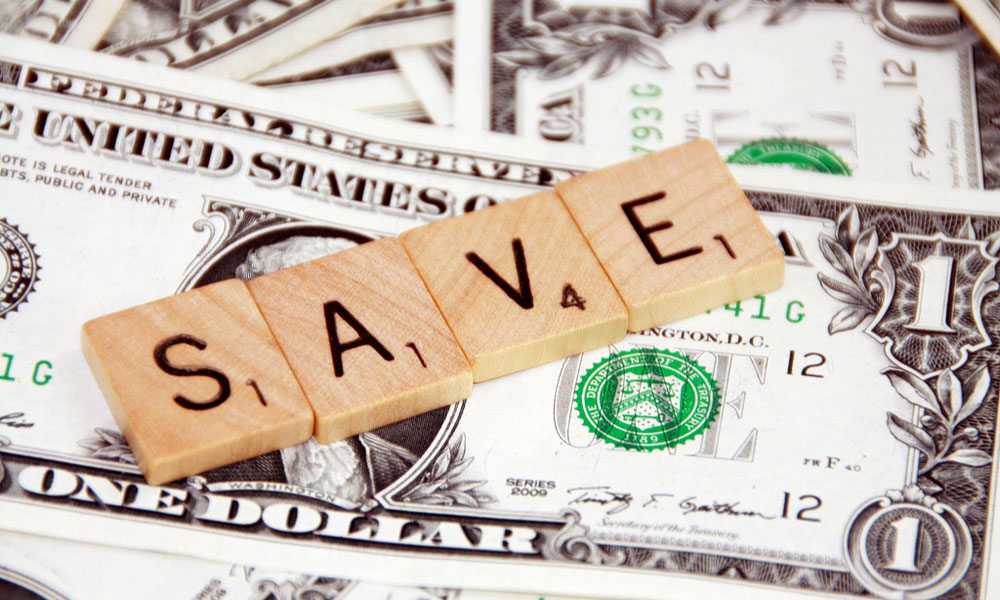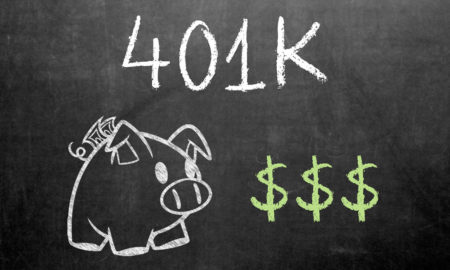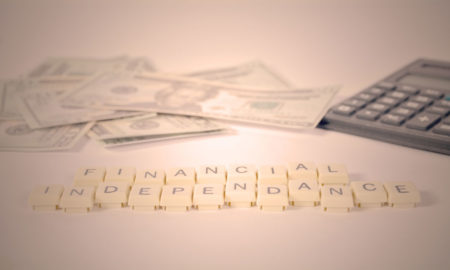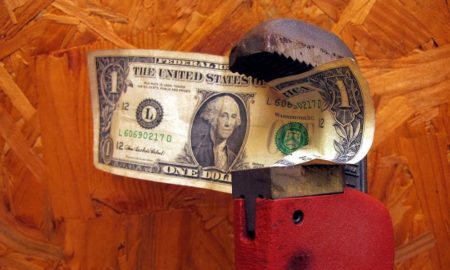

Deprecated: Implicit conversion from float 1752227133.141199 to int loses precision in /www/investmentzen_357/public/blog/wp-content/plugins/intelly-related-posts/includes/classes/utils/Logger.php on line 93
Deprecated: Implicit conversion from float 1752227133.142004 to int loses precision in /www/investmentzen_357/public/blog/wp-content/plugins/intelly-related-posts/includes/classes/utils/Logger.php on line 93
If you are wondering “How much should I save each month”, I have the answer for you: as much as possible! Money buys many dreams and a lot of freedom.
But seriously, how much of your paycheck you should save is not really the question. The question is: what will you do with the savings?
If you aren’t motivated by an inspiring purpose, I can bet you won’t be saving much.
So picture your life in retirement or early retirement, the time you’d get to travel, spend time with your kids, volunteer or work on a passion project… got it?
Let’s start saving!
How Much Does The Average American Save Each Month?
“The best time to plant a tree was 20 years ago. The next best time to plant a tree is now”
This Chinese proverb offers great wisdom in many areas of life, and it couldn’t be more accurate when it comes to saving.
The average saving rate among Americans is 5.4% as of April 2016.
Saving twice as much, or 10% of your monthly income is better, but it doesn’t make you a hero. That means it would take you about a full year to accumulate just a month worth of income. If you want to save your way to financial independence, you’ll have to do better.
It would take 12 years to have just one year of expenses saved, and since you need 25x your annual expenses to retire on a safe withdrawal rate of 4%, you would have to work for… 51 years before you can think about retirement!
Go on, cry a little, I’ll wait…
Should You Use The 50/30/20 Rule To Determine How Much To Save Each Month?
Many personal finance gurus describe the ideal income allocation as a 50/30/20 ratio.
According to these experts, you should save 20% of your income every month, while 50% goes to fixed recurring expenses such as rent, utilities or car payments, and 30% goes to flexible spending like food and entertainment.
Some put it as 50% needs and 30% wants, but in some expensive cost of living areas, 50% can be your rent alone.
The important part if you want to go by this rule is to try to get 20% in saving. And you can create sub-accounts for short term and long term saving, from holidays to car replacement to college funds to retirement.
Note: If your short term savings isn’t in a high interest savings account, you’re basically turning down free money. Fix this today by signing up for a high interest savings account today.
But if you put 10% in short term savings, that sum will eventually get spent, leaving us with only 10% for retirement, and the same “let’s try not to work for the next 51 years” problem.
Is A 20% Savings Rate Enough If You Want To Retire Early?
Here’s the shockingly simple math to early retirement, which really just boils down to 1 factor:
Your savings rate, as a percentage of your take-home pay
| Savings Rate (%) | Working Years Until Retirement |
|---|---|
| 5 | 66 |
| 10 | 51 |
| 15 | 43 |
| 20 | 37 |
| 25 | 32 |
| 30 | 28 |
| 35 | 25 |
| 40 | 22 |
| 45 | 19 |
| 50 | 17 |
| 55 | 14.5 |
| 60 | 12.5 |
| 65 | 10.5 |
| 70 | 8.5 |
| 75 | 7 |
| 80 | 5.5 |
| 85 | 4 |
| 90 | Less than 3 |
| 95 | Less than 2 |
| 100 | 0 |
Now if you save 80% of your income, that means you live on 20% of what you make, and every month, you set away 4 months of expenses. The money saved every quarter can cover your yearly expenses, and financial independence in that case is just 6 years away. That easy.
Easy? For a vast majority, saving 80% is simply impossible.
But how about saving 50% of your income? That would put financial independence 17 years away, which seems like a reasonable compromise.
Can you really save 50% of Your Income?
Saving 50% of your household’s income every month is more manageable, especially if there are two of you. Many couples make it work on one salary. If you think about it, if your partner moves in with you, that is your rent split in half, saving on expensive dates, and only a marginal increment in utilities.
Another easy way to save a greater percentage of your income is to live on last year’s salary. I mean, you managed to do so before you got that raise, didn’t you?
So bank your raise for a year, and next year, spend this year’s income, while you save your new raise. It is not uncommon to get a raise of 3-5% per year, so that is a simple boost for your nest egg.
Another easy way to save a greater percentage of your income is to live on last year’s salary. Click To TweetHere’s How You Can Save More Money Each Month
Before you say that saving more money than you already do every month is impossible, let’s look at a simple trick to save more without saving more.
By that I mean that your disposable income will actually remain the same – AFTER you have funded your savings account.
Sound impossible? Not at all, here’s how to do it
- First, take advantage of your company match and fill your 401k up to that limit. Not only is it an instant 100% return on your investment, the sums you save also decrease your gross income, resulting in tax savings.
- Then, max out your IRA, and enjoy another helping of tax savings. Pick a low cost broker or robo-advisor and invest in index funds, then forget about it until retirement.
- You can now go back to maxing out your 401k and any other accounts with tax breaks, Roth IRA, 529 accounts, HSA, etc.
- A bonus smart saving tip – make sure you’re at least getting 1% interest on your day-to-day savings to help combat inflation. If you’re not earning at least 1% on your savings, you may want to consider signing up for a high interest savings account.
By taking advantage of tax-deferred accounts and your company match, you’re already saving way more than you did before – without actually affecting your current spending.
Of course, if you want to retire early or achieve other ambitious financial goals, you’ll have to do more.
Using the 1% trick to build up your savings
One method I like in order to save more money each month is the 1% increment.
On month 1, save 1% of your income. Or 1% more than you usually do if you’re not saving anything.
Raise that to 2% the following month, and so on until it hurts.
If you are starting from zero, it might take a while to save enough money each month to make your retirement dreams a reality, but there is nothing better than building a habit slowly and surely.
If you try straight away to save 50% of your paycheck the first month, chances are you will eventually go back to your old ways because, like a crash diet, you went too hard too fast.
But the great thing about the 1% trick is that you won’t need to make any drastic lifestyle changes at first, you’ll have time to adapt.
Remove the money decisions by automating your finances
So let’s get back to our attempt to save 50% of each paycheck. If you want to make this year’s raise disappear and get full advantage of your company match – the best way to do it is to have your money automatically taken off your paycheck or out of your bank account on payday.
This way at the end of each pay period, you will be left with your living allowance, and that’s it.
Because that is what your brain sees when you log onto your online banking, your mind won’t question whether there is more money to spend – especially if you only use debt cards tied to that bank account.
I talked previously about how hard it is to make decisions every day. Automated contributions will remove willpower from the equation. You just do it.
If you wait until the 30th to contribute whatever is left in your checking account, you will save less, because you’ll be relying on your willpower.
Don’t trust yourself to save more. Automate it instead, and the question of how much you should save each month just took care of itself.
Save Consistently & Let Compound Interest Work For You
Ready for another tree proverb?
“The greatest oak was once a little nut that held its ground”.
You should save money with each and every paycheck. The earlier you start, the earlier you’ll be out. Keep your eyes on the prize, it is worth it.
I was lucky to get an early start, and when I escaped the rat race at 29, the look in my friends’ eyes was priceless. Time and compound interest work wonders.
It doesn’t matter if you haven’t started yet, as long as you start now.
A nest egg won’t build itself in a day. But it has to be a steady affair. Click To Tweet


























